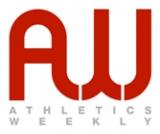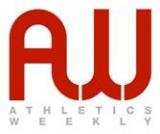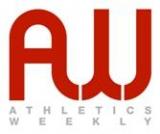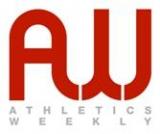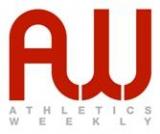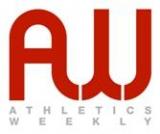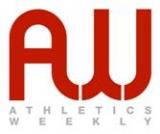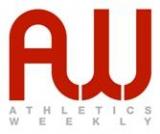Folders |
Against the grain carbs for athletesPublished by
Avoiding gluten is seen by some as a route to better performance. Here, Nick Pagan and sports dietician Rick Miller investigate the latest dietary pariahFor years athletes have been told carbloading or cramming their muscles with energy from pasta, couscous and wholemeal bread is the best way to help their body cope with heavy training. But, it s not always the case. For some people, eating too many carbohydrates causes sluggishness and bloated feelings along with aching joints and a foggy head. What is going on? Signs and symptomsIt could be that they re intolerant to gluten, a protein found in grains such as wheat, rye, barley and, to a lesser extent oats. In a small proportion of people, gluten cannot be properly digested and causes the surface of the intestine to become damaged and inflamed. Along with the symptoms just described, the outcome can be that certain nutrients such as vitamins, minerals and essential fats are poorly absorbed by the body. Cutting out foods that contain gluten including bread, pasta, cereals, pizza and pastry is the only way to avoid the adverse side-effects. It s a route down which a number of high-profile athletes are now heading, including Novak Djokovic and Andy Murray. Paula Radcliffe has previously spoken about how cutting out foods that contain gluten helped to resolve gut problems that had adversely affected her performances. Is it serious?It can be. Coeliac disease a severe adverse reaction to gluten is an auto-immune condition that damages the lining of the small intestine if gluten is consumed. According to Coeliac UK, around 1 in 100 people are thought to have the disease so it s pretty common, although as many as 24% of sufferers don t realise they have it. A simple blood test with a GP will confirm if you suffer from it and need to cut all gluten from your diet. What about gluten intolerance?Less serious is non-coeliac gluten sensitivity (or NCGS), a condition that can give rise to similar symptoms. No two people react the same way to gluten-intolerance and many doctors dispute that it actually exists since it can t be diagnosed through a blood test or by any other means. One recent survey showed that just one third of people who believed they had NCGS were found to suffer the kind of symptoms connected to the intolerance such as diarrhoea, abdominal pain, constipation and sometimes a flaky skin rash. Removing gluten from your diet is the only way to tell if you have an intolerance. Should we all go gluten-free?Just because you aren t diagnosed with a gluten problem doesn t mean you can t try cutting down. Many athletes have made the switch to a gluten-free diet in spite of the fact they have not been diagnosed with an intolerance. And some have reported their performances improved as a result, although evidence is purely anecdotal. Why might these improvements occur? It s not clear as research has shown there s no direct link, but some experts think it could be down to a peptide (protein fragment) called Gliadin 7 that is formed when gluten is digested. When broken down by the body, Gliadin 7 can bind to opioid receptors throughout the body, resulting in a number of side-effects, one of which could be the ‘brain fog that many people with a supposed intolerance to gluten report. How do you avoid it?So, if you re an athlete and want or need to cut out gluten, but still maintain optimum performance, what should you do? There are the five major gluten- containing grains wheat, barley, rye, semolina and oats that need to be avoided. These are commonly found in bread (gluten gives bread its soft, doughy texture), pasta, pastries, flour, cakes and biscuits so cut those out of your diet. Check labels on all the foods you buy, too, as these ingredients are in sauces, such as soy sauce and ketchup. Beware that they could be labelled as as ‘codex wheat starch or ‘barley malt extract , both of which contain gluten. Likewise, avoid meat in breadcrumbs or batter. A good resource is Coeliac UK s ‘guide to common grains found on the organisation s website. What should you eat instead?Many foods are available that will give you the carbohydrates you need that you can substitute for those mentioned in the last paragraph. Quinoa, rice, root vegetables including potatoes and sweet potatoes are great sources of carbs. Gluten-free oats are freely available and corn (maize) and sorghum are also naturally gluten-free. Pulses, beans and chick peas, fruit and green vegetables are also carbohydrate- rich. If you want to cut out or reduce your meat intake, try tofu, which is also gluten-free. Don t forget fibreBe sure to add in a bit of extra fibre to your diet if you go gluten-free as most of the foods you stop eating are fibre-rich. Eating plenty of brown rice, corn, amaranth edible seeds available from specialist shops millet, quinoa and sorghum or even a jacket potato should take care of all your fibre needs if you eat them regularly. Look for gluten-free labelsBy law, foods claiming to be gluten-free and labelled as such have to contain 20 parts per million or less of gluten. This applies to any type of food from soups and sauces to sausages. Supermarkets will often have specific sections for gluten-free foods and it s fairly simple to swap pasta made from buckwheat with pasta made from quinoa, for example, without too much difficulty. If you re unsure whether something is gluten- free, look out for the crossed grain symbol as this is recognised by Coeliac UK and its members. All products displaying the symbol must undergo strict tests to carry it. Rick Miller is a clinical and sport dietician. See rick-miller.co.uk The post Against the grain – carbs for athletes appeared first on Athletics Weekly. Read the full article at: www.athleticsweekly.com
|
